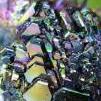-
Posts
926 -
Joined
-
Last visited
-
Days Won
1
2ndRateMind last won the day on August 31 2014
2ndRateMind had the most liked content!
About 2ndRateMind
- Birthday 06/09/1963
Profile Information
-
Gender
Male
-
Location
Pilgrim on another way
-
Religion
Seeker
Recent Profile Visitors
5090 profile views
2ndRateMind's Achievements
-
 Maureen reacted to a post in a topic:
A Realization I had During Ramadan Last Night
Maureen reacted to a post in a topic:
A Realization I had During Ramadan Last Night
-

A Realization I had During Ramadan Last Night
2ndRateMind replied to unixknight's topic in General Discussion
OK, so to hammer the point home (I do not think you need the clarification @Midwest LDS but others might find it of interest): should I choose the admittedly imperfect Joseph Smith and forego wine, or the supposedly perfect Gospel Jesus, and indulge in moderate moderation? Best wishes, 2RM. -
 Midwest LDS reacted to a post in a topic:
A Realization I had During Ramadan Last Night
Midwest LDS reacted to a post in a topic:
A Realization I had During Ramadan Last Night
-

A Realization I had During Ramadan Last Night
2ndRateMind replied to unixknight's topic in General Discussion
And that is something I simply cannot disagree with! Best wishes, 2RM. -

A Realization I had During Ramadan Last Night
2ndRateMind replied to unixknight's topic in General Discussion
Interesting. How do you tell the difference between what Joseph Smith thought on this topic, and what Jesus thinks? In other words, is everything Smith says the voice of Christ? Does Smith have no opinion at all, other than Christ's opinion? Is Smith as perfect as Christ? Best wishes, 2RM. -

A Realization I had During Ramadan Last Night
2ndRateMind replied to unixknight's topic in General Discussion
That is contrary to my reading of the Gospels. But maybe the Book of Mormon says different. Best wishes, 2RM. -

A Realization I had During Ramadan Last Night
2ndRateMind replied to unixknight's topic in General Discussion
And that is the root of the dilemma. Jesus, Christ, Messiah and 2nd part of the Godhead Trinity, accepts, even desires and requires, the drinking of wine. The prophet Joseph Smith tells us it is wrong. Where, and why, should I place my allegiance? Best wishes, 2RM. -

A Realization I had During Ramadan Last Night
2ndRateMind replied to unixknight's topic in General Discussion
I entirely endorse whatever dietary rules one chooses to accept because, to that individual, they seem to be good. But I cannot get my head around the idea that one should keep a rule for the sake of the rule. Pig meat, for example, may have been dangerous in bronze age times, due to parasites and disease, and that for me, would be an entirely adequate reason to forego. But it isn't now, and the rule is the ghost of what was then an entirely good idea. But I do not see why Jews and Muslims should keep the ghosts of such good ideas in today's climate of animal and human welfare. My own particular weakness is for wine. And I note that Jesus was not averse to a cup or two, even to the extent of conjuring it up at the wedding in Canaa, and stipulating that we should remember him with a quaff in communion. I do not recommend alcoholism, but abstinence for no reason other than some rule seems to me to be no better than over indulgence. They are both a tad extreme for my taste. Life, it seems, keeps its rewards for those who are moderate in all things, including moderation. Best wishes, 2RM. -
On the contrary, I hope to affirm their environmental activities and political choices. Any beating over the head I reserve for those who think, like Trump, that global warming is a hoax perpetrated by the Chinese to progress their nefarious interests. I do not know the exact figures, but I would be prepared to hazard a small wager that at least 97% of climate scientists do not believe this. As for your other point, I do not think we are so far apart as you seem to. Whether 97% of scientists (your statistic, not mine) agree that we face global warming and imminent environmental disaster is a simple matter of fact. Either they do, or do not. The contention is either true or false. However, whether they have the academic right to believe what they believe about climate change is less a matter of fact than about philosophical judgment and the projected future, given the extrapolations of current trends. Best wishes, 2RM
-
And let me take this opportunity to applaud their activities. Best wishes, 2RM.
-
I think you are missing my point. I am not arguing that because 97% of scientists agree, what they agree upon is fact, any more than I would argue that because 97% of Latter Day Saints agree, what they agree upon is fact. I am arguing that being scientists, they have respect for scientific method, and that their agreement is founded on that scientific method. And scientific method has proven itself, thus far, to be a reliable manner to arrive at the truth value of an empirical, a posteriori, contention. Scientists, with their academic credentials and reputation on the line, tend to be very careful about what they endorse and do not endorse as matters of fact. And I am willing to trust in that carefulness, even if you are not. Best wishes, 2RM.
-
Do you think, then, that climate scientists have no reasons to agree, other than their desire to agree? Best wishes, 2RM
-
Hmmm. Is everyone you disagree with 'ideologically possessed'? As for Dr Micheals, I do not think he is a quack, (the word I used was 'maverick') I just point out that the overwhelming majority of climate scientists would disagree with him. He, and you, seem to be sceptical enough of the consensus on climate change to serve for all of us. Nevertheless, I think it worth exploring the potential impact if a) he is wrong, and the rest of the academics right, and b) he is right, and the rest of the academics are wrong, assuming we make minimum appropriate changes to our current lifestyles. In case a) we have disaster, maybe multiple disasters, and the irretrievable degradation and decline in the fertility of the planet. In case b) we don't have such disasters, and our precious habitats remain intact. Borrowing a concept from Game Theory, we have, then, a payoff matrix something like the following: Make no change to our lifestyles. and climate change happens: payoff = -100 Make no change to our lifestyles, and climate change doesn't happen: payoff = 0 Make changes to our lifestyles, and lesser climate change happens: payoff = -50 Make changes to to our lifestyles and climate change doesn't happen: payoff = -10 Either way, all we risk by way of a 'stake', is whatever climate change amelioration and mitigation measures we might feel appropriate to put in place. The 'minimax'* solution is to assume climate change will happen and make appropriate adjustments to our lifestyles to reduce its impact. So the questions become, how much are we prepared to risk, and how moral is it to make that wager? Best wishes, 2RM. *minimise the maximum losses and gains.
-
No, I don't think I am focusing on just one indicator, more citing it by way of an example. Were the world on a sustainable footing, the icecaps wouldn't be melting at all, either faster or slower than the projections of the climate models. But, to bring us back to the OP of this thread, a million species are threatened with extinction due to global warming and the human destruction of their habitats. To be sure, Fox News, pandering to its conservative audience, will always be able to find a maverick scientist who denies such an outcome of climate change and that the wholesale destruction of complete ecologies is possible, likely, or certain, but do we really want to place our trust in such mavericks, when gainsaid by the mainstream academic consensus, and given the magnitude of the risk? Would that really constitute 'good stewardship'? It seems to me that the wise course of action is to hope for the best, but prepare for the worst. And that attitude suggests that 'business as usual' is not an option available to us, any longer. Best wishes, 2RM.
-
So, my question is, if global warming is happening seven times slower than the models predict, why are the polar ice caps melting faster than they predict? Best wishes, 2RM.
-
 Fether reacted to a post in a topic:
Life and lifestyle stuff
Fether reacted to a post in a topic:
Life and lifestyle stuff
-
Very possibly. But when, come judgement day, I face my Creator alone and stripped of all my fond illusions, I will at least be able to look Him in the eye, unashamed, and say: 'I did my best'. Best wishes, 2RM.
-
Can't argue much with that. Apparently, the attitude of the Japanese to the preservation of whale species is not to seek to conserve them, but to eat as much whale meat as possible now, before it's all gone forever. So, we need to take that kind of foolishness into consideration. Best wishes, 2RM.







